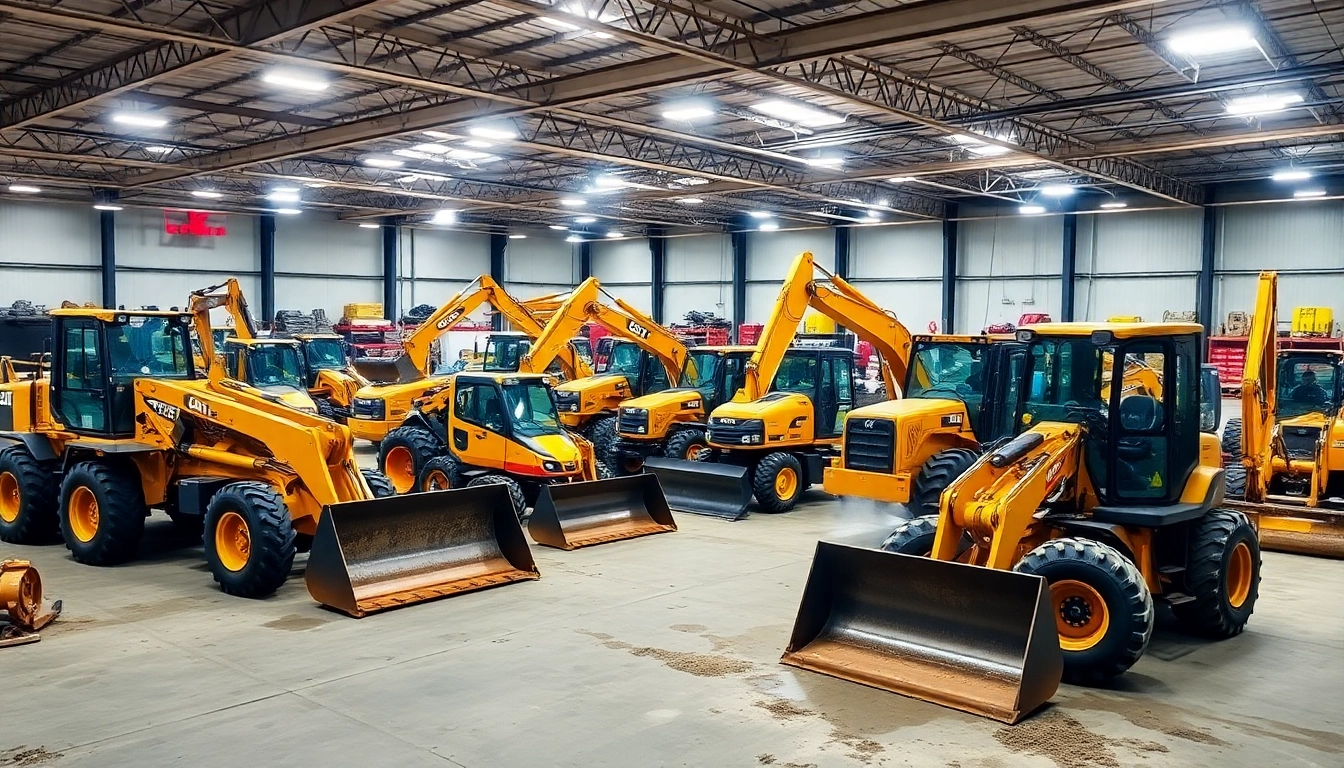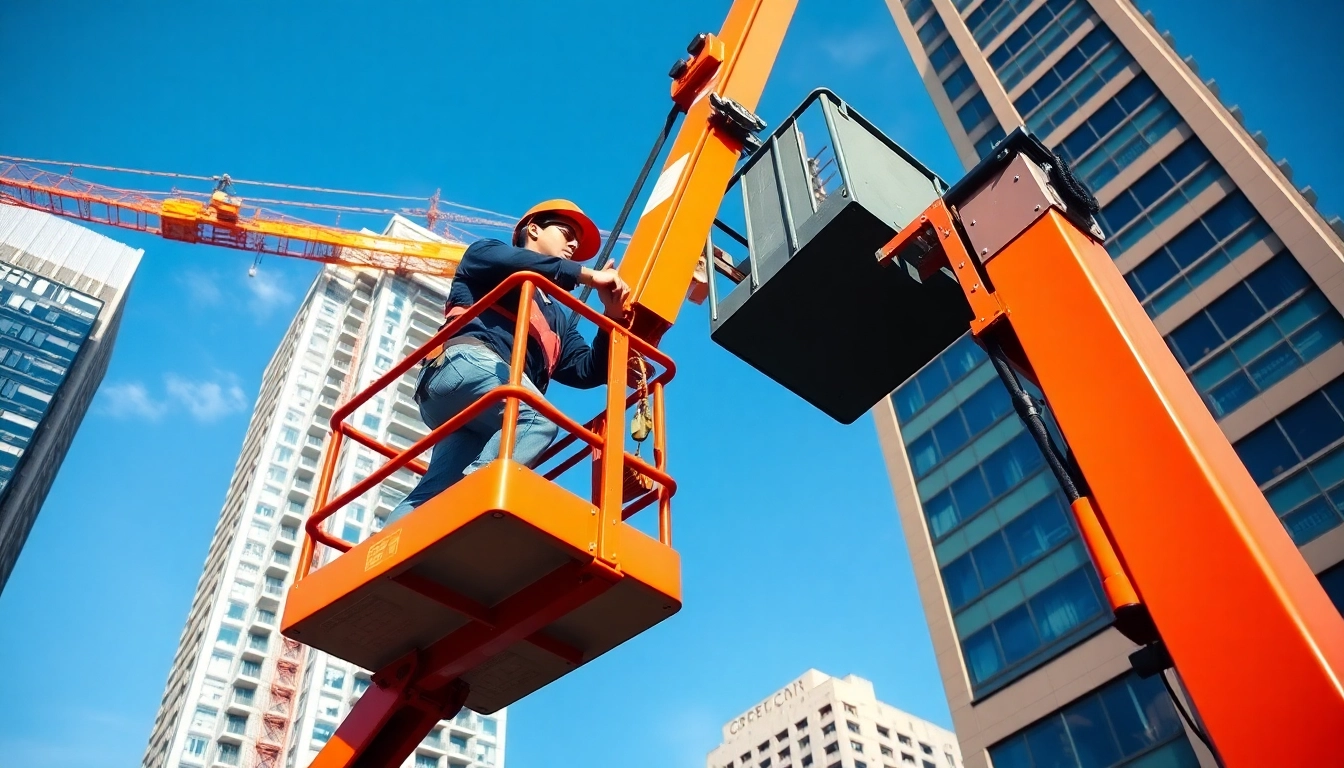Understanding Construction Equipment Rental: Benefits and Essentials
In the dynamic landscape of modern construction, efficiency, flexibility, and cost management are paramount. Construction companies and contractors increasingly turn to construction equipment rental as a strategic approach to meet project demands without the financial burden of equipment ownership. This comprehensive guide explores the nuances of construction equipment rental in the UK, offering industry insights, practical tips, and future trends to help your business optimize operations and maximize returns.
Why Choose Construction Equipment Rental Over Purchase?
Opting for rental rather than outright purchase of construction machinery presents numerous advantages, particularly in a market characterized by fluctuating project scopes and technological evolution. Here are the core reasons why rental is often the preferred choice:
- Cost Efficiency: Rental eliminates substantial capital expenditure, converting large upfront costs into manageable operating expenses. Contractors can allocate their budget more effectively, investing in other critical project areas.
- Access to a Wide Range of Equipment: Renting provides immediate access to the latest machinery, including advanced features and upgraded models that might be cost-prohibitive to purchase outright.
- Maintenance and Support: Reputable rental providers handle routine maintenance, safety inspections, and repairs, reducing downtime and ensuring equipment longevity.
- Flexibility for Project Scale and Duration: Rental facilitates scalability; equipment can be rented for short-term tasks or extended projects, aligning costs precisely with project timelines.
- Reduced Storage and Depreciation Concerns: Ownership entails costs related to storage, depreciation, and eventual disposal. Renting sidesteps these issues, offering cleaner logistical management.
Recognizing these benefits, many UK-based construction firms leverage rental services to stay competitive, manage cash flow, and access cutting-edge equipment seamlessly.
Key Types of Construction Machinery Available for Rent
The diversity of construction projects necessitates a broad spectrum of machinery. Rental providers in the UK offer an extensive inventory, including specialized and general-purpose equipment to meet varying demands.
Excavators and Loaders
Heavy machinery like excavators and wheel loaders are fundamental to excavation, material handling, and site grading. Modern models are equipped with GPS, hydraulic controls, and eco-friendly features.
Skid Steer Loaders and Compact Equipment
Ideal for urban sites, skid steer loaders are versatile, suitable for digging, lifting, and site cleanup in confined spaces.
Compactors and Rollers
For preparing foundations and ensuring soil stability, plate compactors and vibratory rollers are essential, with ranges including walk-behind and ride-on models.
Concrete Mixers and Pumping Equipment
From portable mixers to large-scale pumping systems, these tools streamline concrete installation, enhancing productivity and quality.
Specialized Attachments and Mini Machinery
Attachments such as breakers, augers, and cranes extend equipment versatility. Mini excavators and compact tools suit projects with space constraints.
Leading rental firms ensure machinery is up-to-date, well-maintained, and complies with UK safety standards, providing clients with confidence and operational efficiency.
How Rental Services Streamline Building Projects
Efficient project management hinges on the timely and reliable availability of equipment. Rental companies contribute significantly to streamlining construction workflows by offering turnkey solutions that encompass logistics, maintenance, and technical support.
End-to-End Equipment Management
From delivery to pickup, rental providers coordinate logistics to ensure equipment reaches the site as scheduled. Many companies also track usage and maintenance history through digital systems, enabling proactive management.
Redundancy and Contingency Planning
Having access to multiple units or backup machines reduces project delays caused by equipment failure. Rental firms often maintain reserve inventories for urgent needs.
Adapting to Project Changes
Construction projects frequently evolve. Rental flexibility allows firms to scale equipment up or down, switch models, or add new machinery without long-term commitments.
Expert Consultation and Support
Rental providers offer technical advice on equipment selection and operation, ensuring compliance and safety adherence, which mitigates risks and enhances productivity.
Choosing the Right Construction Equipment Rental Provider
Selecting a reliable rental partner is crucial for project success. The UK market offers a multitude of providers, but not all guarantee the same standards. Consider these criteria:
Factors to Consider: Service, Availability, and Cost
- Comprehensive Service Offerings: Ensure the provider offers a wide range of equipment, flexible rental periods, and value-added services like training and technical support.
- Availability and Delivery Logistics: Confirm the availability of equipment when needed, and assess their delivery, pickup, and emergency support capabilities.
- Competitive Pricing and Transparent Contracts: Obtain detailed quotes, compare rental rates, and review contractual terms, including conditions for damages and late returns.
- Customer Support and Responsiveness: Read reviews and seek testimonials to gauge the provider’s responsiveness, professionalism, and after-sales support.
Evaluating Equipment Quality and Maintenance Standards
High-quality equipment that meets European safety standards minimizes breakdowns and safety incidents. Verify maintenance routines, certification records, and age of machinery before signing a rental agreement.
How to Verify Rental Company Credentials in the UK
Look for industry accreditations, including membership in trade associations such as the Building Engineering Services Association (BESA) or the Construction Equipment Association (CEA). Additionally, check for compliance with ISO standards and Health & Safety regulations.
Online reviews, case studies, and testimonies provide further assurance regarding reliability and professionalism. Collaborating with recognized national or local rental firms with a strong reputation ensures peace of mind and operational excellence.
Best Practices for Safe and Effective Equipment Usage
Proper handling of rented machinery not only enhances safety but also extends equipment lifespan, resulting in cost savings. Follow these best practices:
Operational Guidelines for Heavy Machinery
Operators should possess proper certifications and undergo training tailored to each machine type. Regularly inspect equipment before use, check safety features, and adhere to manufacturer instructions.
Ensuring Safety Compliance on Construction Sites
Safety protocols must be documented and visibly communicated to all personnel. Use PPE (Personal Protective Equipment), establish exclusion zones, and conduct safety briefings prior to equipment operation.
Scheduling and Logistics for Equipment Delivery and Return
Coordinate with rental providers to optimize delivery schedules. Maintain clear documentation of equipment condition upon receipt and return to avoid disputes. Proper storage and protection during downtime are also vital.
Efficient scheduling minimizes downtime, prevents scheduling conflicts, and ensures that equipment is available when needed, thus maintaining project momentum.
Maximizing ROI with Construction Equipment Rental
Every resource invested should contribute to project profitability. Apply these strategies to maximize your return on rental investments:
Project Planning and Equipment Selection
Conduct thorough needs assessments prior to project initiation. Select equipment sizes and specifications tailored to specific tasks, avoiding over- or under-utilization.
Cost Optimization Tips for Long-term and Short-term Rentals
Negotiate rental agreements for bulk or multi-project discounts. Consider hybrid solutions that combine leasing with ownership of critical assets. Monitor utilization closely to terminate unnecessary rentals.
Tracking Performance and Maintenance Metrics
Implement digital management systems to log usage hours, maintenance schedules, and operational efficiency. Analytics help identify opportunities for cost savings and performance improvements.
Future Trends in Construction Equipment Rental in the UK
The industry is evolving rapidly alongside technological advancements and sustainability imperatives. Key trends shaping the future include:
Technological Innovations Shaping the Rental Industry
Automation, IoT (Internet of Things), telematics, and AI-powered diagnostics are enhancing equipment monitoring, predictive maintenance, and operational efficiency, reducing downtime and costs.
Environmental Considerations and Sustainable Equipment Options
Green construction practices lead rental firms to offer electric and hybrid machines, with low emissions and energy consumption. Equipment powered by renewable energy sources is gaining popularity, aligning with UK’s climate targets.
Adapting to Market Changes and Expanded Service Offerings
Flexible rental models, integrated logistics, and comprehensive operational support are becoming standard. Digital platforms enable seamless booking, real-time tracking, and customized solutions tailored to evolving client needs.


